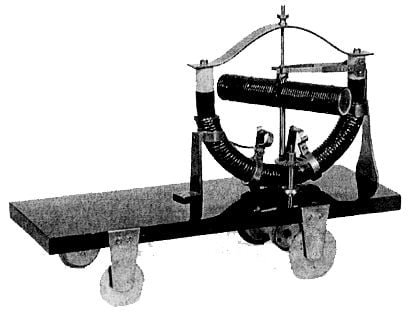Electric Vehicles
This is a post I started six years ago and decided not to publish. Since then things have changed a lot so here goes.
The History of Electric Vehicles
The Electric Vehicle has been around for a long time. The new push to Electric Vehicles is mostly being pushed by the belief that they will reduce carbon emissions. This really depends on where the power comes from, how efficient the motors are and how well the batteries work. Most studies prior to 2011 have shown that unless a substantial amount of the power comes from renewable energy then it is likely the Electric Vehicle will generate more pollution than a petrol vehicle.
Electric Vehicles began a long time before the petrol vehicle was the norm and even way before Vanguard made the first mass produced Electric Vehicle in the 1970s.
Although details vary, 1828 is generally regarded as the date of the First Electric Vehicle and Anyos Jedlik put together a small scale model decades before the modern combusion engine cycle was invented. And the challenge was the same then as it is now, the battery. The History of Electric Vehicles is also the History of the Battery.
So what happened to the Electric Vehicle? The challenge today is still the same, the Battery. We really need a better solution. Which is where my original post stopped.
Guess what? It seems to have happened.
Tesla et al
So enter Elon Musk and Tesla Motors. His purpose is to take petrol off the road so they have done some pretty innovative things including opening up their patent database so anyone can use their technology with their permission.
And of course Nissan, Toyota, Honda and many others are putting Electric Vehicles front and centre in their product lines now.
With improvements in energy density storage and reducing costs for high capacity batteries we are approaching a time when Battery Electric Vehicles are the better choice for the environment, even when charged with electricity derived from fossil fuels. Studies show that there are more Emissions from the manufacture of a Electric Vehicle, but this is made up for in one year of operating emissions improvements and over the course of the Electric Vehicle’s life, Global Warming Emissions are halved. This assumes a 50mpg (US based study) petrol vehicle is used for the comparison. This equates to 21.3Kpl or 4.7L/100Km so this is a realistic comparison with a high efficiency petrol or diesel vehicle.
What a big different six years makes.
Hydrogen Fuel Cell Cars
So how are Hydrogen Fuel Cell based cars progressing? Calculations are that it will be roughly three times less efficient that a Battery Electric Vehicle. And extracting the H2 also requires energy. So H2 is an energy storage source. It is hard to store and manage and so the infrastructure costs are also high. So it is hard to do. The plus is that you don’t consume any fossil fuels in the process if you use some of the new solar based extraction mechanisms so although there are big drawbacks, there are also big benefits.
So the infrastructure just isn’t there. So it looks like Battery Electric Vehicles are still the way to go. But the advantages are big enough that the debate will continue. And it is interesting that we have multiple fuel types in use simultaneously including Petrol (gasoline), Diesel, LPG, Alcohol, Battery Electric, Hydrogen, Biodiesel, compressed air, coal, wood and others.
The big advantages for Hydrogen are:
- longer operating range than battery alone but not as much as petrol/diesel/LPG
- no harmful emissions when running, the same as Battery Electric Vehicles and a big improvement over petrol/diesel/LPG
Time will tell. I should put a diary entry into my calendar for six years time and do another comparison.
Successful Endeavours specialise in Electronics Design and Embedded Software Development, focusing on products that are intended to be Made In Australia. Ray Keefe has developed market leading electronics products in Australia for more than 30 years. This post is Copyright © 2017 Successful Endeavours Pty Ltd.






